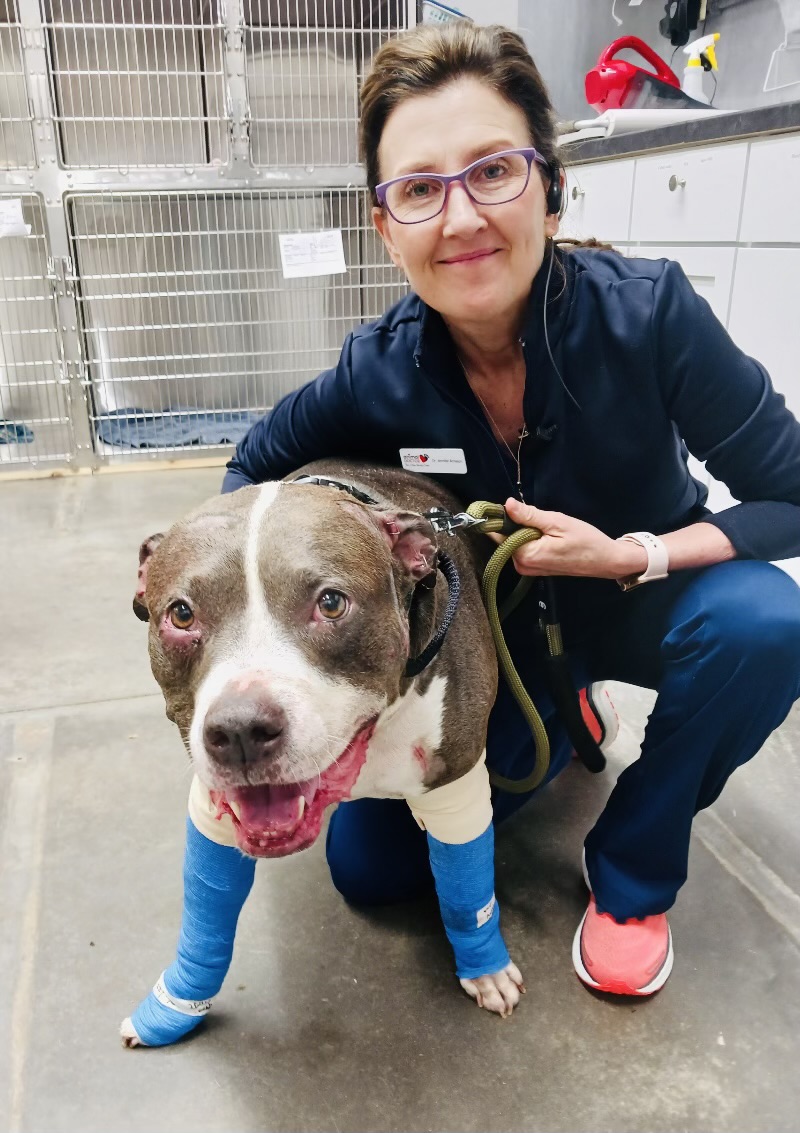Contact Us!
Laceration Repairs
Animal Doctor provides laceration repairs for dogs and cats. We accept referrals and provide second opinions.
Description: Lacerations can occur secondary to trauma from a dog fight, vehicular accident or encounter with a sharp object/fence. Severity can range from a superficial (skin only) to deep (skin, subcutaneous layers, and/or muscle involvement).
Symptoms: Bleeding is normally the first sign that owners will notice before locating the wound.
What to look for: Once you locate the wound, try to keep the wound as clean as possible while controlling the bleeding (apply pressure) until your pet can be seen by a veterinarian.

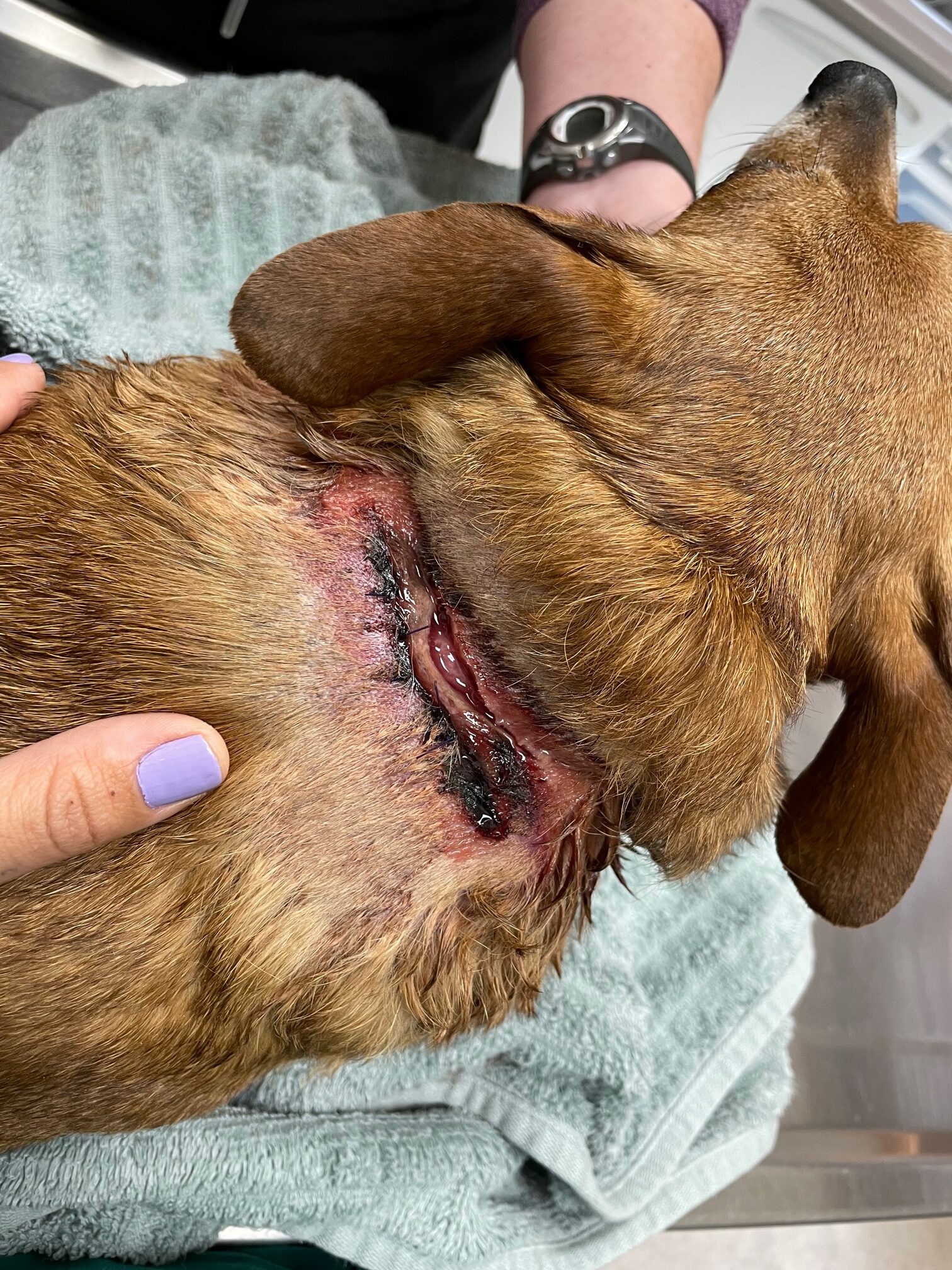
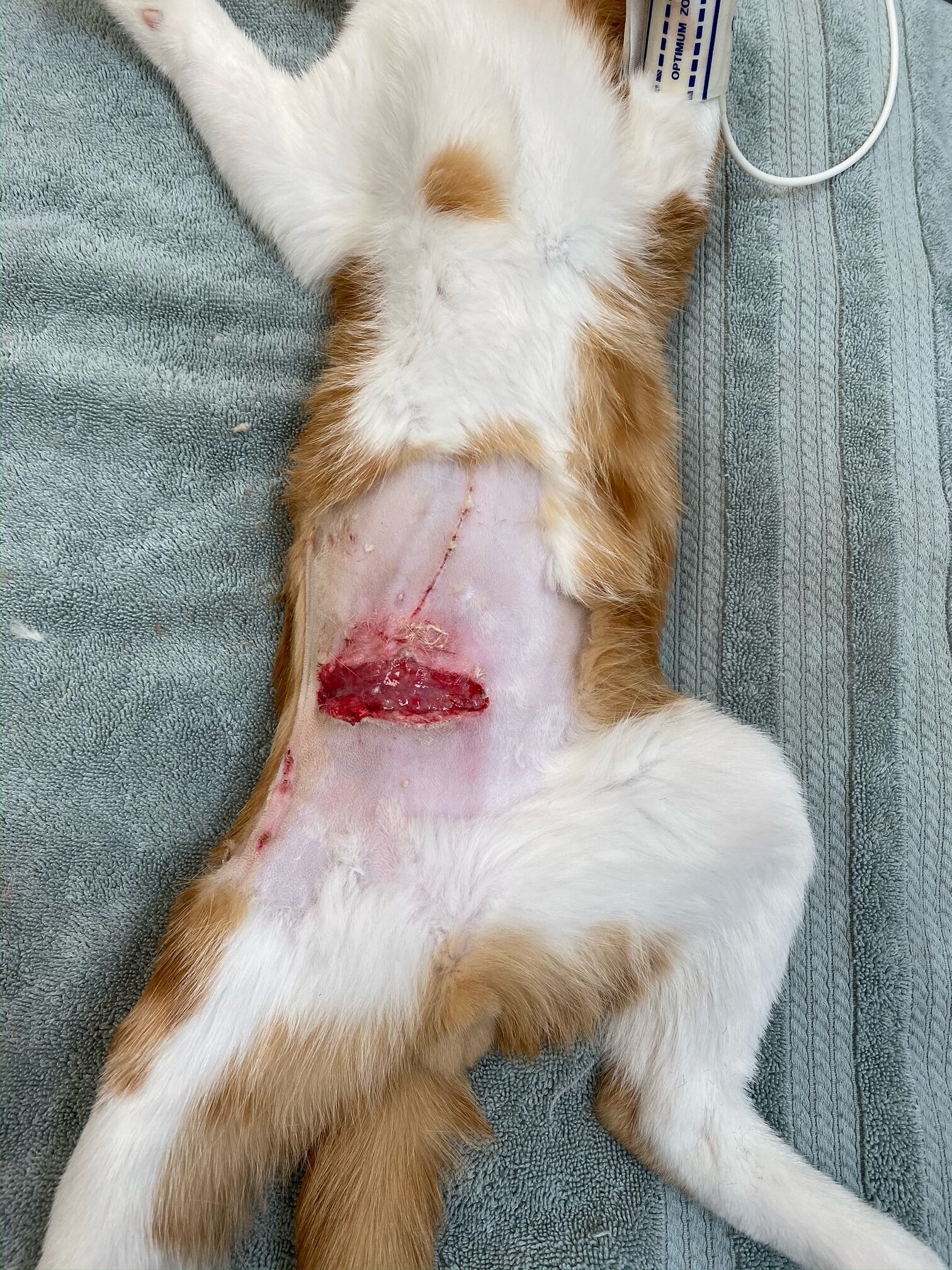
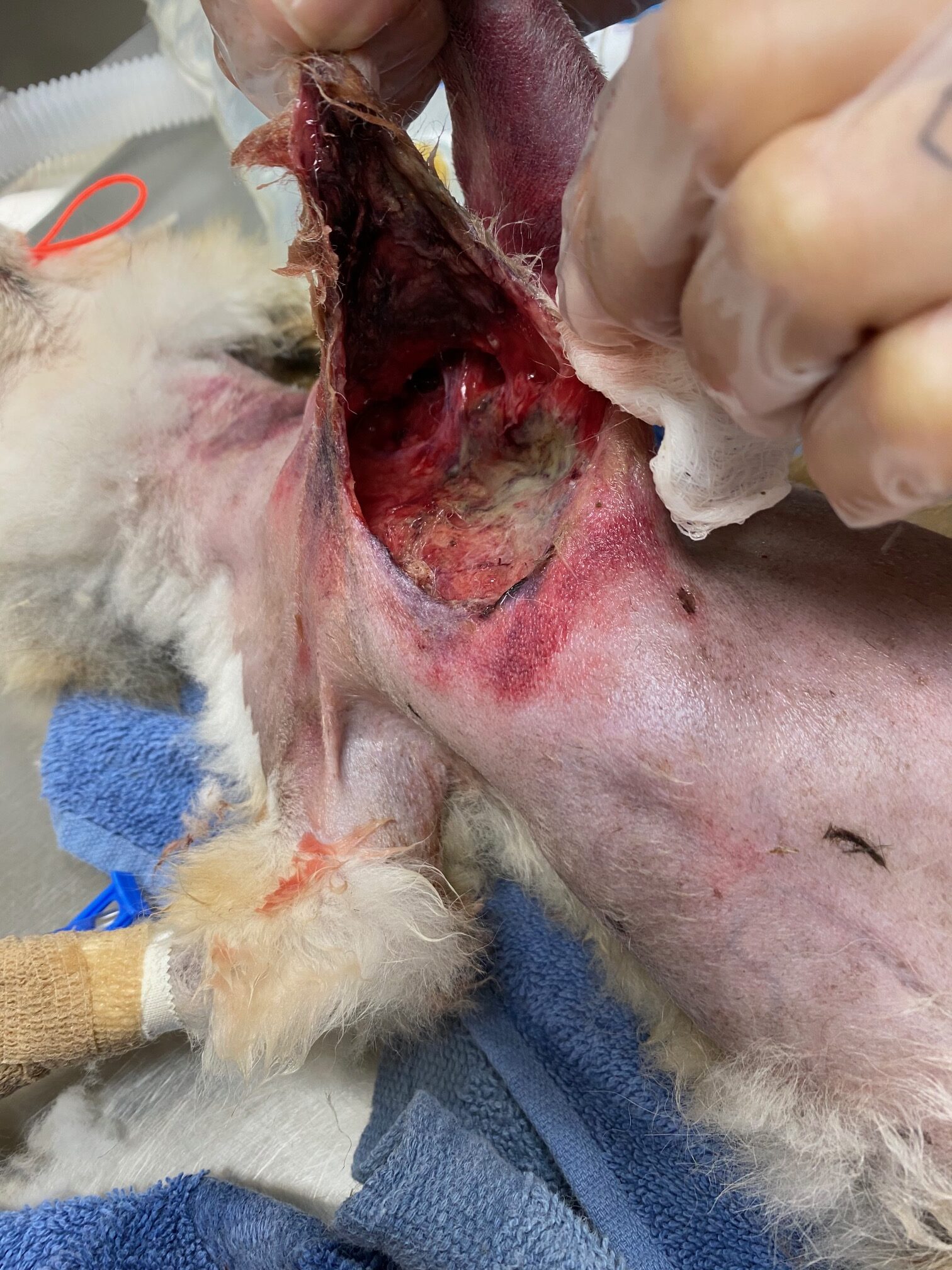
What questions do we ask?
- Where is the wound?
- When did you first notice it?
- Any history of trauma/ do you know how it happened?
- Describe the wound and any changes that you have noticed over time?
- Is the wound itchy?
- Describe any discharge or odor associated with the wound.
What are the steps we take to treat your pet?
- Physical examination to determine the location and severity of the laceration.
- Sedation and/or anesthesia for cleaning and repair of laceration.
- Wounds that are relatively superficial and clean will be closed with sutures or staples to be removed in 10-14 days.
- Wounds that are deeper and have more contamination will likely have a drain placed to allow for drainage for following 7-10 days. Sutures and/or staples will also be placed to close the laceration.
Animal Doctor Laceration Repairs potential treatment plans?
Oral medications
- Antibiotics to inhibit bacterial growth – bite wounds are always considered contaminated.
- Non-steroidal anti-inflammatory medications will be prescribed to reduce inflammation and help with pain control.
- Opioid pain medications will be prescribed if needed for extra pain control in severe cases.
Injections
- Opioid pain medications will be given as a part of the sedation/anesthesia plan.
- Non-steroidal anti-inflammatories might be given while under sedation/anesthesia for severe cases.
- Antibiotics might be given while under sedation/anesthesia for severe cases.
Topical Medications / Treatments
- Topical medications will likely be limited to wounds that are unable to close with sutures or staples. Medications will include an antibiotic to limit bacterial growth.
What results have we seen

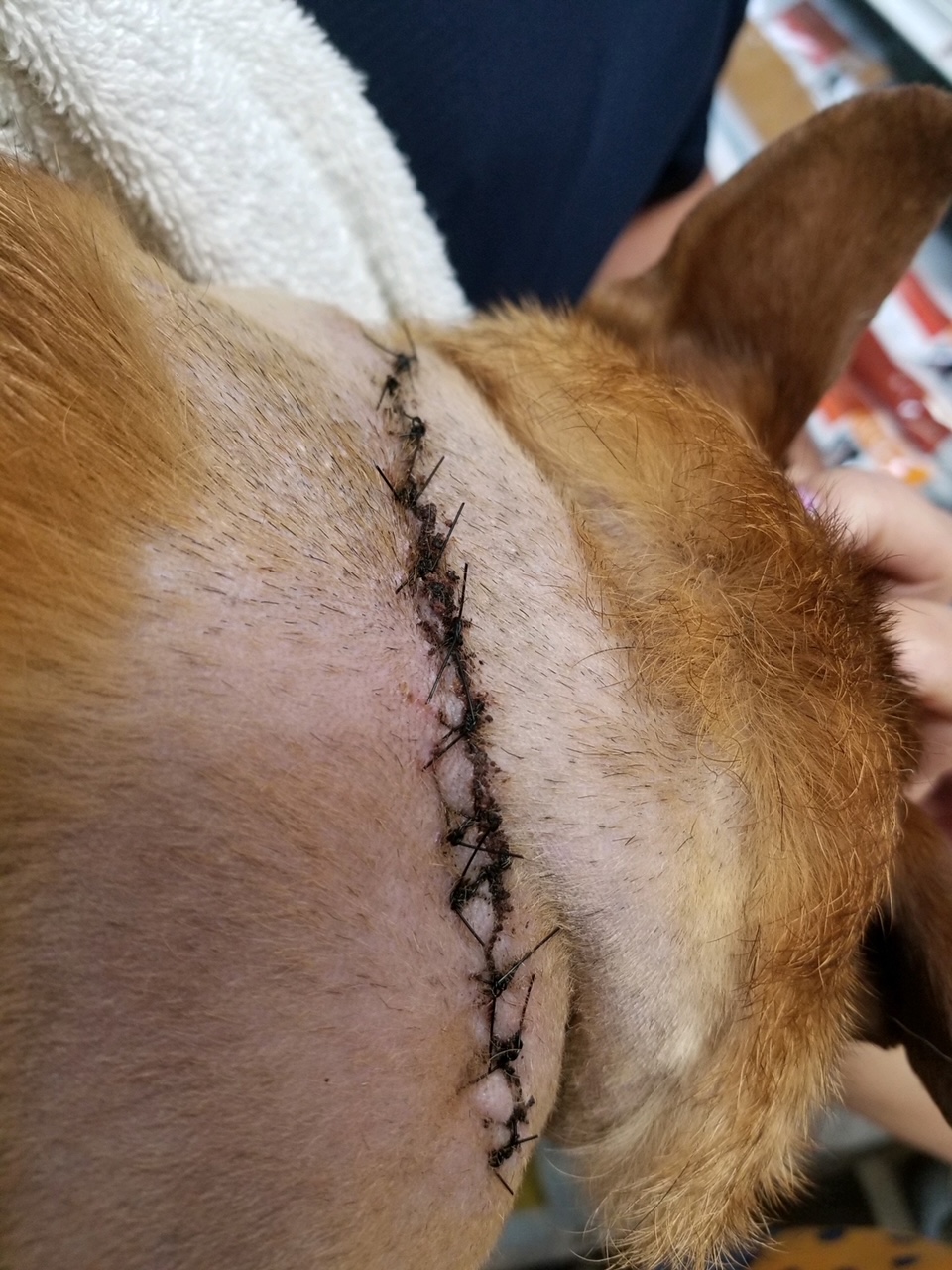


Animal Doctor Provider
Dr. Jennifer Arneson
